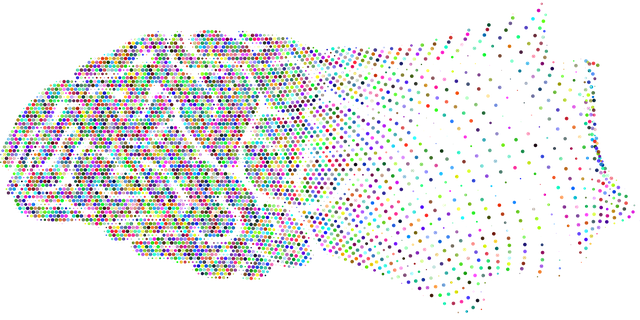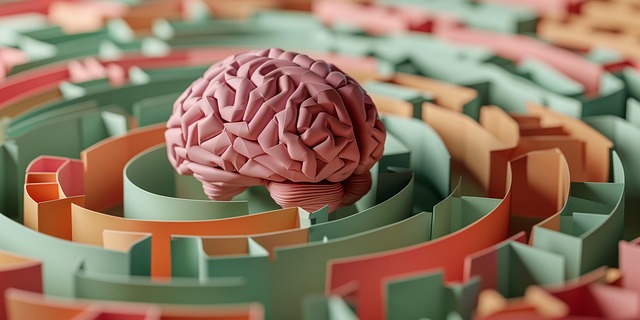Emotional Intelligence (EQ) is crucial for successful communication and relationship building, as emphasized by Lafayette ADD-ADHD Therapy. Through EQ development, individuals learn to manage their emotions, empathize with others, and navigate social situations effectively. This involves mindfulness practices, self-awareness exercises, and integrated risk management planning. Empathy, a key component of EQ, fosters deeper connections and improves social skills for individuals with ADD/ADHD. Lafayette ADD-ADHD Therapy prioritizes strong social skills, using compassion cultivation, role-playing, and mental health advocacy to enhance interactions and overall well-being, especially for those facing challenges like ADD/ADHD.
Emotional intelligence (EQ) is a powerful tool for personal growth and successful interactions. Understanding and managing your emotions, as well as empathizing with others, are vital components of building EQ. In this comprehensive guide, we explore various aspects of emotional intelligence development. From identifying and regulating your own feelings through Lafayette ADD-ADHD Therapy techniques to fostering empathy and enhancing social skills, these strategies empower individuals to navigate relationships with confidence and improve overall well-being.
- Understanding Emotional Intelligence: The Foundation of Effective Communication
- Identifying and Managing Your Own Emotions: A Key Step in Lafayette ADD-ADHD Therapy
- Empathy: Walking in Another's Shoes for Deeper Connections
- Social Skills Development: Navigating Relationships with Confidence
- Strategies for Enhancing Emotional Intelligence in Daily Life
Understanding Emotional Intelligence: The Foundation of Effective Communication

Emotional intelligence (EQ) is a cornerstone of effective communication and interpersonal relationships. Understanding and managing one’s own emotions, as well as recognizing and empathizing with others’ feelings, forms the foundation for meaningful connections. At Lafayette ADD-ADHD Therapy, we emphasize EQ development because it empowers individuals to navigate social interactions with confidence and sensitivity.
Through self-awareness exercises and mind over matter principles, people can learn to identify triggers, manage stress, and cultivate positive emotional responses. This not only enhances personal relationships but also provides anxiety relief in various aspects of life. By investing time in building emotional intelligence, individuals can transform their communication style, fostering deeper connections and more productive interactions.
Identifying and Managing Your Own Emotions: A Key Step in Lafayette ADD-ADHD Therapy

Identifying and managing your own emotions is a fundamental aspect of emotional intelligence development, especially in Lafayette ADD-ADHD Therapy. This process involves recognizing and understanding your feelings, as well as learning to regulate them effectively. Through compassion cultivation practices, individuals can develop a deeper sense of self-awareness, enabling them to respond rather than react impulsively. By practicing mindfulness and emotional awareness, one can gain control over their emotions, leading to improved decision-making and healthier relationships.
In Lafayette ADD-ADHD Therapy sessions, clients are guided to explore their emotional landscapes with curiosity and kindness. This involves learning to identify triggers, understanding the intensity of feelings, and cultivating strategies to manage them. Risk management planning for mental health professionals is also integrated, ensuring individuals have tools to navigate intense emotions safely and constructively. As emotional intelligence grows, individuals become better equipped to handle challenges, fostering a sense of resilience and improved overall well-being.
Empathy: Walking in Another's Shoes for Deeper Connections

Empathy is a cornerstone of emotional intelligence that allows us to understand and share the feelings of another. When we put ourselves in someone else’s shoes, we gain a deeper connection and perspective that transcends mere communication. This ability is vital for fostering strong relationships, whether at work or in personal life. For individuals with ADD-ADHD, developing empathy can be a significant aspect of therapy, helping them to navigate social interactions more effectively.
Lafayette ADD-ADHD Therapy often incorporates strategies for enhancing social skills training and confidence boosting, which are integral parts of building empathy. Through role-playing scenarios and group discussions, therapy sessions encourage individuals to practice active listening, perspective-taking, and emotional recognition—skills that contribute to better risk management planning for mental health professionals. By engaging in these activities, individuals learn to navigate complex social situations with greater ease, ultimately strengthening their ability to form meaningful connections.
Social Skills Development: Navigating Relationships with Confidence

Developing strong social skills is a vital aspect of emotional intelligence building, especially for individuals navigating challenges like ADD-ADHD. Lafayette ADD-ADHD Therapy emphasizes the importance of fostering connections and managing relationships with confidence. Through various compassion cultivation practices, clients learn to enhance their communication, empathy, and understanding of others’ perspectives. These skills are crucial in forming meaningful bonds, resolving conflicts, and creating supportive social networks.
Incorporating mental health policy analysis and advocacy into therapy sessions enables individuals to recognize and challenge societal barriers that may impact their relationships. By promoting cultural sensitivity in mental healthcare practice, therapists help clients navigate diverse interpersonal dynamics with respect and understanding. This holistic approach ensures that individuals with ADD-ADHD can build resilient social skills, fostering healthier connections and improving overall well-being.
Strategies for Enhancing Emotional Intelligence in Daily Life

Building emotional intelligence (EI) is a continuous process that can significantly enhance your interactions and overall well-being. In daily life, several practical strategies can foster EI development. One effective approach is to actively practice mindfulness, which involves being fully present in the moment and observing your emotions without judgment. Techniques like meditation or simply taking a few deep breaths when feeling overwhelmed can help individuals become more aware of their emotional states.
Additionally, improving communication skills is paramount. Effective communication strategies encourage open and honest expression of feelings, fostering understanding and empathy. This can be achieved through active listening—really paying attention to what others are saying and asking clarifying questions. For those in Lafayette ADD-ADHD Therapy or seeking crisis intervention guidance, learning these communication techniques can be instrumental in managing emotions during challenging situations. Integrating stress reduction methods, such as exercise, journaling, or engaging in hobbies, further supports emotional well-being, enabling individuals to respond rather than react in emotionally charged scenarios.
Emotional intelligence is a multifaceted skill that significantly enhances our personal and professional lives. By understanding and managing our emotions, fostering empathy, and developing strong social skills, we can create more meaningful connections and navigate relationships with grace. Incorporating strategies from Lafayette ADD-ADHD Therapy into daily routines can revolutionize emotional awareness, making it accessible to everyone. Through conscious practice, building emotional intelligence becomes a transformative journey that enriches both personal growth and interpersonal dynamics.














